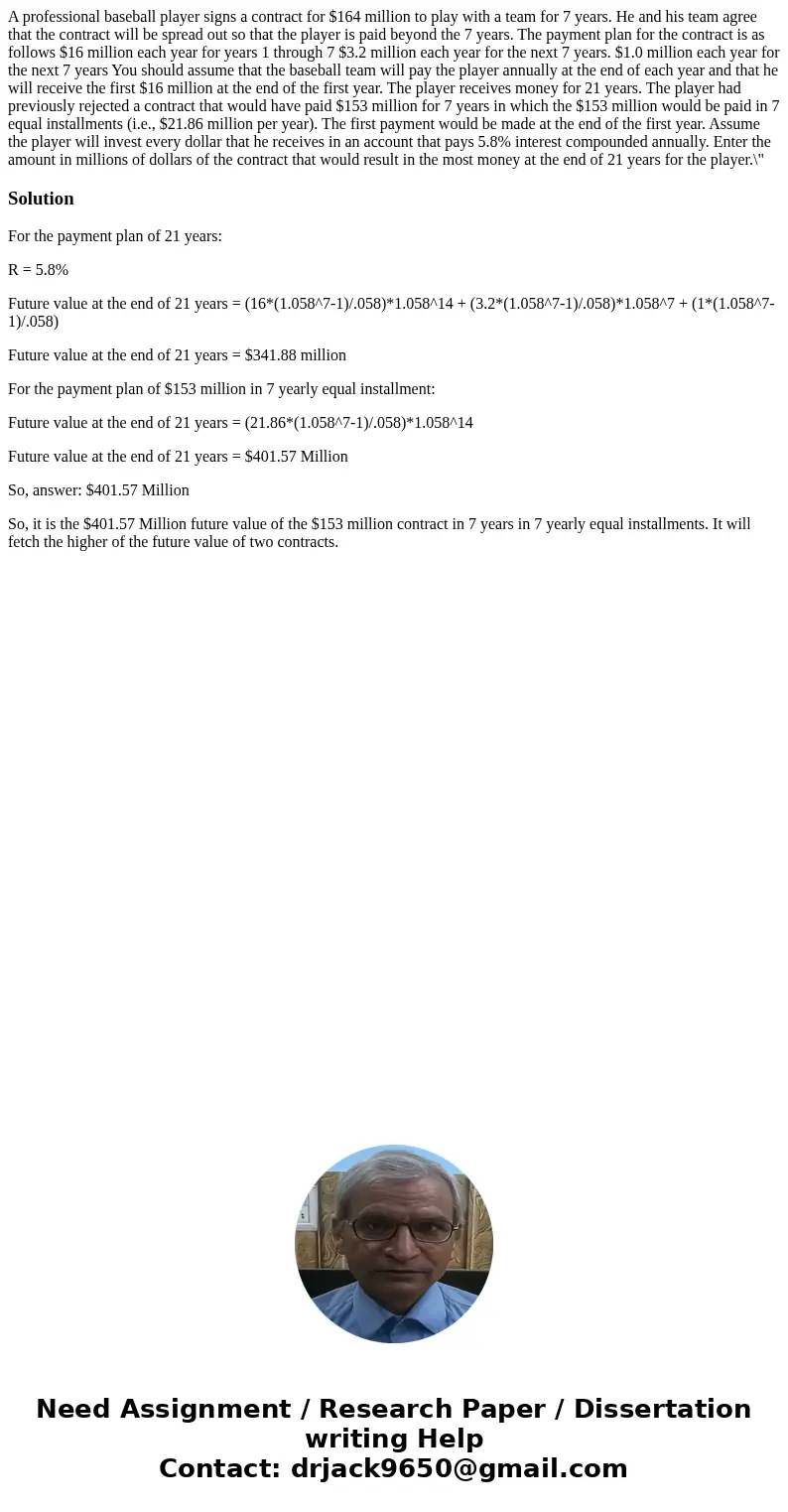A professional baseball player signs a contract for 164 mill
A professional baseball player signs a contract for $164 million to play with a team for 7 years. He and his team agree that the contract will be spread out so that the player is paid beyond the 7 years. The payment plan for the contract is as follows $16 million each year for years 1 through 7 $3.2 million each year for the next 7 years. $1.0 million each year for the next 7 years You should assume that the baseball team will pay the player annually at the end of each year and that he will receive the first $16 million at the end of the first year. The player receives money for 21 years. The player had previously rejected a contract that would have paid $153 million for 7 years in which the $153 million would be paid in 7 equal installments (i.e., $21.86 million per year). The first payment would be made at the end of the first year. Assume the player will invest every dollar that he receives in an account that pays 5.8% interest compounded annually. Enter the amount in millions of dollars of the contract that would result in the most money at the end of 21 years for the player.\" 
Solution
For the payment plan of 21 years:
R = 5.8%
Future value at the end of 21 years = (16*(1.058^7-1)/.058)*1.058^14 + (3.2*(1.058^7-1)/.058)*1.058^7 + (1*(1.058^7-1)/.058)
Future value at the end of 21 years = $341.88 million
For the payment plan of $153 million in 7 yearly equal installment:
Future value at the end of 21 years = (21.86*(1.058^7-1)/.058)*1.058^14
Future value at the end of 21 years = $401.57 Million
So, answer: $401.57 Million
So, it is the $401.57 Million future value of the $153 million contract in 7 years in 7 yearly equal installments. It will fetch the higher of the future value of two contracts.

 Homework Sourse
Homework Sourse